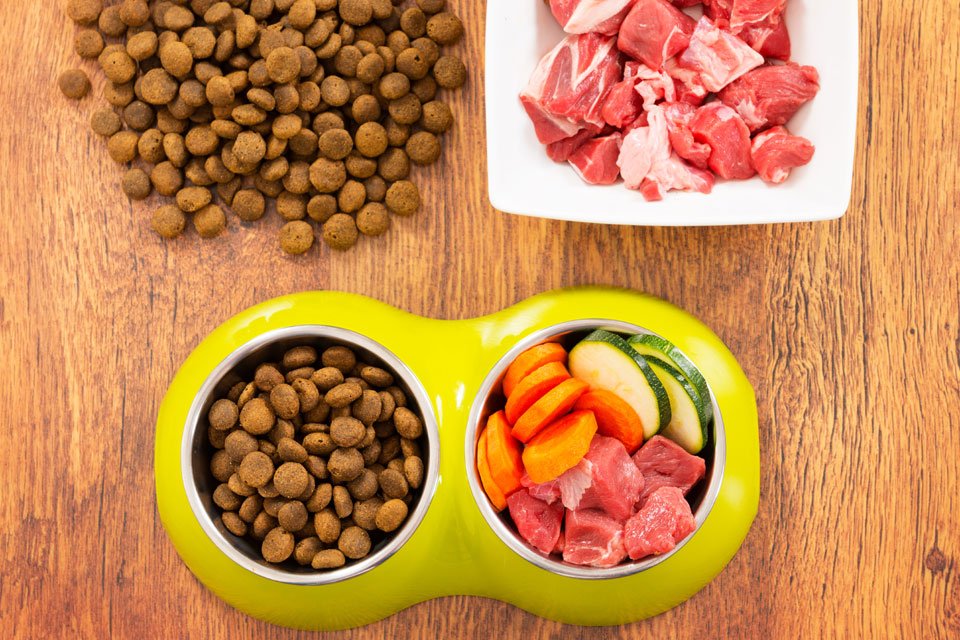High Healthy Proteins for Your Dog: 7 Best Sources of Protein for Man’s Best Friend

As devoted pet owners, we strive to provide our furry companions with the best nutrition to ensure their well-being and longevity. One crucial component of a dog’s diet is protein, which is essential for maintaining muscle mass, promoting a shiny coat, and supporting overall health.
While commercial dog foods offer a convenient solution, it’s essential to understand the protein sources to ensure your dog gets a balanced and nutritious diet. This article explores the top six high-quality protein sources for your four-legged friend.
1. Chicken
Chicken is a staple protein source for dogs, offering a rich and easily digestible protein profile. It contains essential amino acids, the building blocks of proteins necessary for muscle development and maintenance.
Chicken is also a good source of vitamins and minerals such as B vitamins, niacin, and phosphorus, contributing to your dog’s overall health. When incorporating chicken into your dog’s diet, opt for lean cuts and ensure it is cooked thoroughly to avoid bacterial contamination.
2. Beef Trachea
In canine nutrition, beef trachea emerges as a hidden gem, offering taste and nutritional benefits for man’s best friend. This natural chew is a delectable treat for your dog and a rich source of protein, glucosamine, and chondroitin.
The trachea’s cartilage supports joint health, making it an excellent choice for dogs with arthritis or common issues. Moreover, beef trachea for dogs chewy texture promotes dental health by reducing plaque and tartar buildup.
When introducing beef trachea to your dog’s diet, ensure it is sourced from reputable suppliers, free from additives or preservatives.
Whether served as a satisfying snack or incorporated into the regular meal rotation, beef trachea is a wholesome addition, contributing to your dog’s overall well-being and happiness.
3. Beef
Beef is another excellent source of protein for dogs, providing a diverse nutrient profile. It is rich in iron, zinc, and B vitamins, supporting energy levels, immune function, and a healthy coat.
Lean ground beef or cuts such as sirloin and round are preferable to fatty cuts to prevent excess calorie intake. When serving beef to your dog, it’s crucial to cook it thoroughly to eliminate the risk of harmful bacteria.
Additionally, consider grass-fed or organic beef to ensure a higher quality protein source.
4. Fish
Fish, particularly fatty fish like salmon and mackerel, is a fantastic protein source for dogs. These fish are rich in protein and provide omega-3 fatty acids, which contribute to a healthy coat, skin, and joints.
Omega-3 fatty acids are anti-inflammatory and can benefit dogs with arthritis. When incorporating fish into your dog’s diet, ensure it is cooked, and remove any bones to prevent choking hazards.
Small, soft bones in fish, such as canned salmon, are generally safe and can even contribute to dental health.
5. Eggs
Eggs are a cost-effective and versatile protein source for dogs. They contain all the essential amino acids needed for muscle development and maintenance. Also, eggs provide crucial vitamins and minerals, including vitamins A, D, and selenium.
The protein in eggs is easily digestible, making it an ideal option for dogs with sensitive stomachs. To serve eggs to your dog, cook them thoroughly to avoid the risk of salmonella. You can scramble, boil, or even serve eggs over your dog’s regular food for a nutrient boost.
6. Turkey
Turkey is a lean and protein-packed option for your canine companion. Like chicken, turkey is an excellent source of essential amino acids, vitamins, and minerals. It is also lower in fat than other meat sources, making it suitable for dogs that need to maintain a healthy weight.
When including turkey in your dog’s diet, opt for lean cuts and ensure it is fully cooked. Avoid seasonings and additives, as they may be harmful to your dog. Consider turkey as a rotational protein source to provide variety in your dog’s diet.
7. Cottage Cheese
Dairy products can be a good source of protein for dogs, and cottage cheese is a particularly favorable option. It is rich in protein and calcium, strengthening bones and muscles.
Cottage cheese is also relatively low in lactose, making it easier for dogs to digest than other dairy products.
When introducing cottage cheese to your dog’s diet, start with small amounts to ensure they tolerate it well. Opt for plain, unsweetened varieties without added flavors or sugars.
Conclusion
Prioritizing high-quality protein sources is paramount to ensuring your furry friend’s health and well-being. Incorporating various protein sources into your dog’s diet provides essential nutrients and adds flavor and interest to their meals.
Consider your dog’s needs, including age, size, and activity level, when determining the appropriate amount and type of protein to include in their diet.
By choosing the best protein sources, you’ll take a significant step towards promoting a long, happy, and healthy life for your beloved canine companion.











